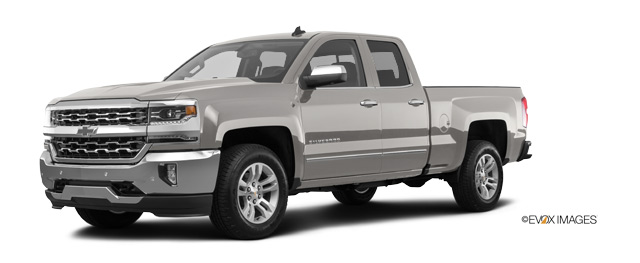Anytime you take out a loan for the purchase of a vehicle, you should plan to refinance (or refi) that loan in the future. This allows you to take advantage of a lower interest rate — courtesy of the economy or just an improvement of your own credit score.
You can also use a refi to remove a cosigner from a loan, reduce the length of time until your debt is cleared, or even lower your monthly payments.
It’s interesting to learn, though, that of all the vehicles on the road in the U.S., trucks are refinanced the most often… and by a long shot. Why is this the case, and what does it mean for truck drivers and car drivers alike? More importantly, should this impact your future vehicle purchases in any way?
Truck Most Refinanced by State in 2018
Let’s take a look at the current refinancing data, and why the refi market has found a friend among truck owners.
Refinancing Pickup Trucks: What the Numbers Show
An interesting trend has emerged among consumers, which shows no signs of stopping: when it comes to refinancing vehicle loans, pickup truck drivers are undoubtedly the majority. We see this not only across the market, though, but also right here at RateGenius.
Here’s our data from the last five years, taking a look at the types of vehicles that our own customers choose to refinance. As you can see, pickup trucks account for the lion’s share of refinance loans. In fact, you can see that in most years, trucks were refinanced more often than all of the other vehicle types combined!
Pickup truck drivers didn’t just refinance their vehicles most often, though. They also saved themselves more money in the process, $89 per month on average.
So, as we can tell from the data, pickup truck drivers are refinancing their auto loans in droves, compared to car drivers. They are also saving themselves a ton of money when they do. But exactly why is refinancing loans on trucks so popular? And how are these customers saving themselves more money than drivers of almost every other vehicle type?
Why Are Drivers Choosing to Finance Their Trucks?
To be honest, we don’t know precisely why pickup trucks are being refinanced more often than all other vehicles on the road. However, we do have some pretty good (data-based) theories as to the reason this is happening and what it means for you as a driver.
Trucks Simply Cost More
There’s one very easy explanation for why drivers of trucks are refinancing their auto loans more than other drivers:
their loans are much bigger!
From 2008 to 2018, the average purchase price for full-size pickup trucks rose a shocking 48 percent. This is the highest 10-year price increase of any vehicle class, meaning that trucks are not only costly, but they’re getting even more expensive every single year.
Trucks are expensive
The higher your auto loan, the more of a strain it can put on your budget. According to Edmunds, the average full-size pickup truck purchase price is currently about $48,377. When you compare that to the average compact car price ($20,484), mid-size car price ($25,865), and even full-size car price ($34,110), it’s easy to see how truck drivers could potentially need to refinance their auto loan along the way, rather than simply wanting to.
Some drivers may wind up with payments that they struggle to afford a few years down the line. By refinancing, they have the opportunity to lower those payments and ensure that they can successfully pay off their note.
A higher purchase price could also mean that a buyer needs to opt for a longer loan repayment length. That could result in multiple opportunities over the course of a 5-, 6-, or even 7-year term to refinance for a better interest rate, either due to economic shifts or improvements in their own credit situation.
Since trucks do have a higher purchase price, on average, this makes it even more important for their owners to find the most competitive loan terms around. If there’s a chance to drop the interest rate by a few points, even if it’s years down the line, that could mean saving the owner hundreds or thousands of dollars. This makes refinancing almost imperative for many truck drivers.
Trucks last longer
My grandfather had an old blue truck when I was a child; I never saw him drive anything else, in fact. By the time that truck finally kicked the bucket, it had 240,000 miles on it… and for many drivers of pickup trucks, that’s not such a rare sight to see.
Trucks were originally created for work: hauling, towing, and traveling over rough terrain all day long. The trucks of the last few years haven’t seen the levels of hard labor that their predecessors did, though. In fact, while today’s trucks are designed to be even more powerful and long-lasting than ever, they are more often used for carpooling kids than working around the ranch.
Because of this, trucks tend to last longer than expected. They are heavier vehicles with a strong engine and large tow capacity; however, the engine is rarely (if ever) pushed to its actual limits. This means that today’s trucks are often overbuilt yet understressed, allowing them to last well past the 100,000 mile odometer marking. In fact, three American-built pickup trucks made it onto iSeeCars.com’s top 15 list of longest-lasting vehicles on the road!
So, what does this have to do with refinancing? Well, when you have a vehicle that you expect to last for 10-15 years (or more), you may decide to stretch your auto loan as far as it can go. This gives you many years to shop for competitive auto refinance rates when your credit improves or when the market changes. It also means that your budget may change over the span of many years, dictating that you lower or raise your monthly payments accordingly.
Trucks have a higher resale value
Full-size pickup trucks tend to hold their value quite well, at least compared to many other vehicles on the market today. This allows their drivers to take advantage of excellent refinance opportunities, without being hindered by a high loan-to-value ratio, more commonly referred to as LTV.
A vehicle’s LTV is the ratio between its outstanding loan balance and its actual value (“loan-to-value”). This is important because if an owner’s loan repayment schedule isn’t as fast (or faster) than the vehicle’s depreciation, they’ll find themselves upside down… or owing more than their vehicle is worth.
Many lenders require that a vehicle’s LTV ratio be below a certain percentage (usually under 130%, but there are some lender exceptions) before they will offer to refinance the loan. If you have a vehicle that doesn’t hold its value well, or depreciates quickly, you will find that your refi options become very limited. For pickup truck owners whose vehicles retain much of their value, this is less of an issue.
How to Calculate a Truck's LTV

LTV = 112%
And of course, if it’s easier for a truck driver to successfully refinance, it only makes sense that pickup trucks are refinanced more than other vehicles.
The market for trucks is improving
Ten years ago, gas prices had soared to a painful $4.11 per gallon. As a result, truck and large SUV sales took a nosedive for a few years. By January 2019, though, this price had dropped to a much more comfortable $2.24 per gallon. It only stands to reason, then, that the upward trend in truck sales can be (at least somewhat) attributed to increased affordability at the pump.
The demand for pickup trucks in recent years is likely also due to the influx of luxury features available today. While the pickups of 20 years ago were rugged vehicles that you weren’t afraid to get dirty, today’s trucks can come loaded with heated steering wheels, full-size sunroofs, plush leather seats, and even interior mood lighting. This has made them desirable to an entirely new group of drivers… many of whom are looking for the bells and whistles of a luxury car, with the size and dependability of a pickup.
Truck sales are climbing and show no immediate signs of slowing. Because of this, I think that we can expect to see not only more full-size pickups on the road, but also on the desk of refinancing lenders.
The popularity of pickup trucks may or may not impact your desire to drive one. If you want a vehicle that will likely last a long time — whether you’re hauling heavy loads or carting around kids — a truck might be in your sights.
Should You Refinance Your Truck?
Pickup truck drivers typically save the most money when they refinance their auto loans, compared to other drivers. But this is probably due to the fact that they are paying an ever-increasing price for said vehicles and likely carrying the loans for even longer. If you have a loan on your truck, refinancing is worth considering — especially if you can lower your interest rate, monthly payment, shorten the length of your loan, or all of the above.
About The Author
RateGenius
A better way to refinance your auto loan. RateGenius works with 150+ lenders nationwide to help you save money on your car payments. Since 1999, we've helped customers find the most competitive interest rate to refinance their loans on cars, trucks, and SUVs. www.rategenius.com
;)


